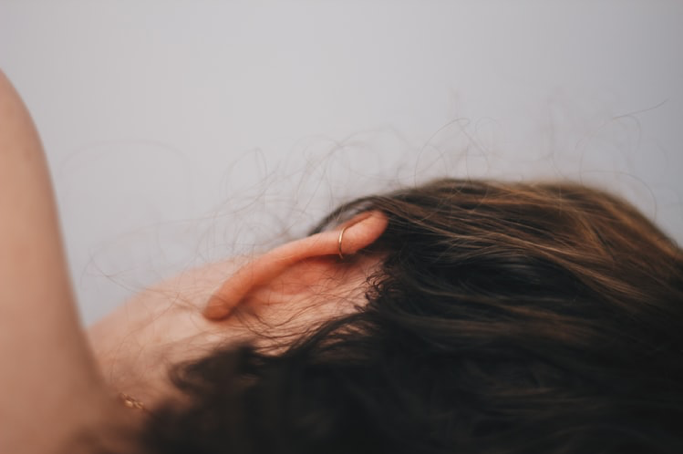Ringing in the ears or tinnitus can be a reason behind several things. While it can cause health problems, it is not a disease. You might be wondering the cause behind constant ringing in the ear without an external source. If you fail to treat it in time, it can damage the tiny hairs in the inner ear. It can also change the signals your brain receives, and because of that, you may have difficulty in hearing. Most often, tinnitus is a symptom of aging, but there might be several other causes as it also occurs in young people. Tinnitus can be permanent or temporary.

(Source)
Tinnitus Triggers
· Age-Related Hearing Loss
Hearing may get worse for many people as they age and deal with Tinnitus. Sometimes, it begins at the age of 60 and will affect both or one ear. Signs that your hearing is getting worse is that you will have trouble hearing high-frequency sounds.
· Loud Noises
The leading cause of Tinnitus is loud noises. The sounds you hear once or every day in your life can lead to tinnitus. These sounds include the backfire of the car, loud machinery, a sporting event, or a concert. This affects both of your ears and can be permanent or temporary.
· Too Much Earwax
Your body makes this lubricant to protect your ears and trap dirt but if too much of this wax piles up. It can lead to hearing loss or ringing in the ears. Doctors can remove this by gently cleaning your ear. Remember, you should not clean your ears on your own using a Q-tip because that can push the earwax further.
· Certain medicines
Over the counter or prescription drugs can also trigger ringing in the ears or make it worse. This includes diuretic, aspirin, anti-inflammatory drugs, nonsteroidal, quinine based medicine, antibiotics, antidepressants, and even drugs for cancer. Taking large doses of these medicines means a higher risk of worsening the problem. At times, doctors may suggest that you stop using the drugs. If you do so, you may notice the symptoms go away after a while. However, you must never stop taking your medication without discussing it with your doctor.
· Ear And Sinus Infections
You might experience tinnitus and other symptoms of a cold at the same time. This can be because of an ear infection that affects your hearing ability and increases the pressure on your sinuses. If that is the case, it should not last longer than the time you have an infection. If this condition persists beyond a week or month, you should visit your doctor.
· TMJ
A problem with your jaw can cause tinnitus. You may notice pain and pop in your jaw joint. The joint shares some ligaments and nerves with your middle ear. The dentist treats you with TMJ disorders, which can help treat tinnitus as well.
· Blood Pressure Issues
This includes blood pressure and many other conditions such as consumption of alcohol, caffeine, and experiencing high-stress levels. It also burns and hardens your arteries, so it becomes less stretchy. Because of this, your blood flows louder and stronger.
Other Medical Problems
These include changes in your inner bones, a disorder that is called Meniere’s disease, the neck injury, or the head injury. Conditions such as Lyme disease and fibromyalgia can also trigger ear ringing. Contact a doctor to help you out in such cases to ease the sound and pain.
Diagnosis
Anyone suffering from tinnitus should urgently visit a doctor for evaluation and examination. The medical evaluation can determine if your condition is serious or life-threatening.
Questions that a doctor might ask to include:
- When or how did it start?
- Are the pulsating and intermittent noises constant?
- Do you feel dizziness, or is there any hearing loss?
- Have you had any type of injury or illness recently?
- Do you have pain in your jaw when clicking?
- Have your ears experienced any type of exposure to the loud noise such as explosive or rock concert?
These tests may include:
- A complete examination of the neck, head, ear, and torso
- Blood test
- Hearing test
- Imaging study

(Source)
Causes of Ringing in the Ears
The most common reason for tinnitus is the loss of tiny sensory hair due to the damage in the cochlea of the inner ear. This sometimes happens to aging people, but it can also be the result of prolonged exposure to excessively loud noise. Tinnitus can coincide with the hair loss. Many articles suggest that the loss of sensory hair can change how the brain processes sound and the sound’s frequency.
When the brain receives the less internal stimuli in the frequency, it begins to adopt the change that is happening. Tinnitus can be the brain’s way of filling in the missing frequencies the brain no longer receives.
Possible causes:
- Ear infection
- Middle ear problems
- Head and neck injury
An object is stuck and is touching your eardrum:
- Cardiovascular disease
- Diabetes
- TMJ disorders
- Stiffening in-ear bone
- Traumatic brain injury
Ringing in the Ears: Conclusion
If you hear a constant ringing sound in your ear, you might be suffering from Tinnitus. You can consult our specialist by calling at 646-213-2321 or visit our website for any further information.

[…] example, you find it hard to focus on work and studies when there are constant ringing sounds in the ears. This results in reduced performance and poor productivity. On the other hand, not getting adequate […]